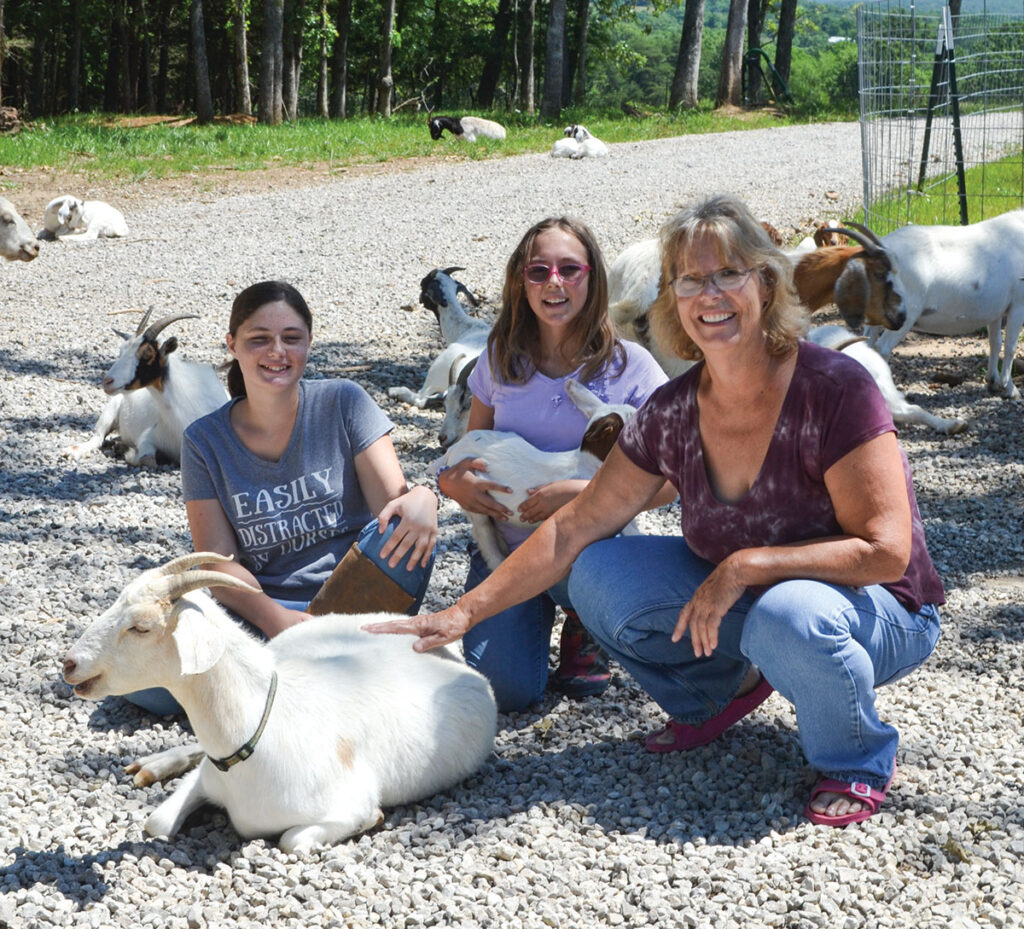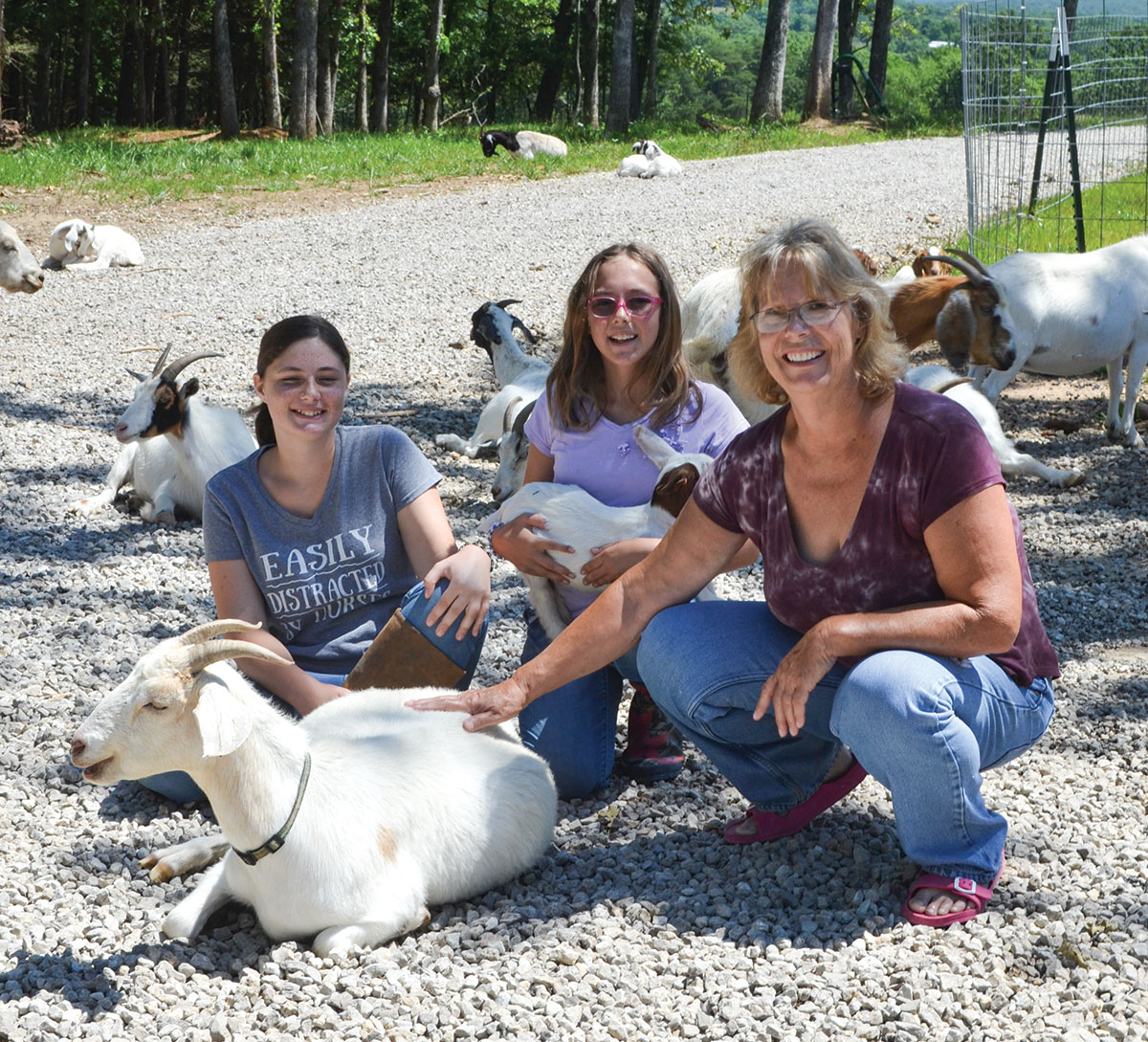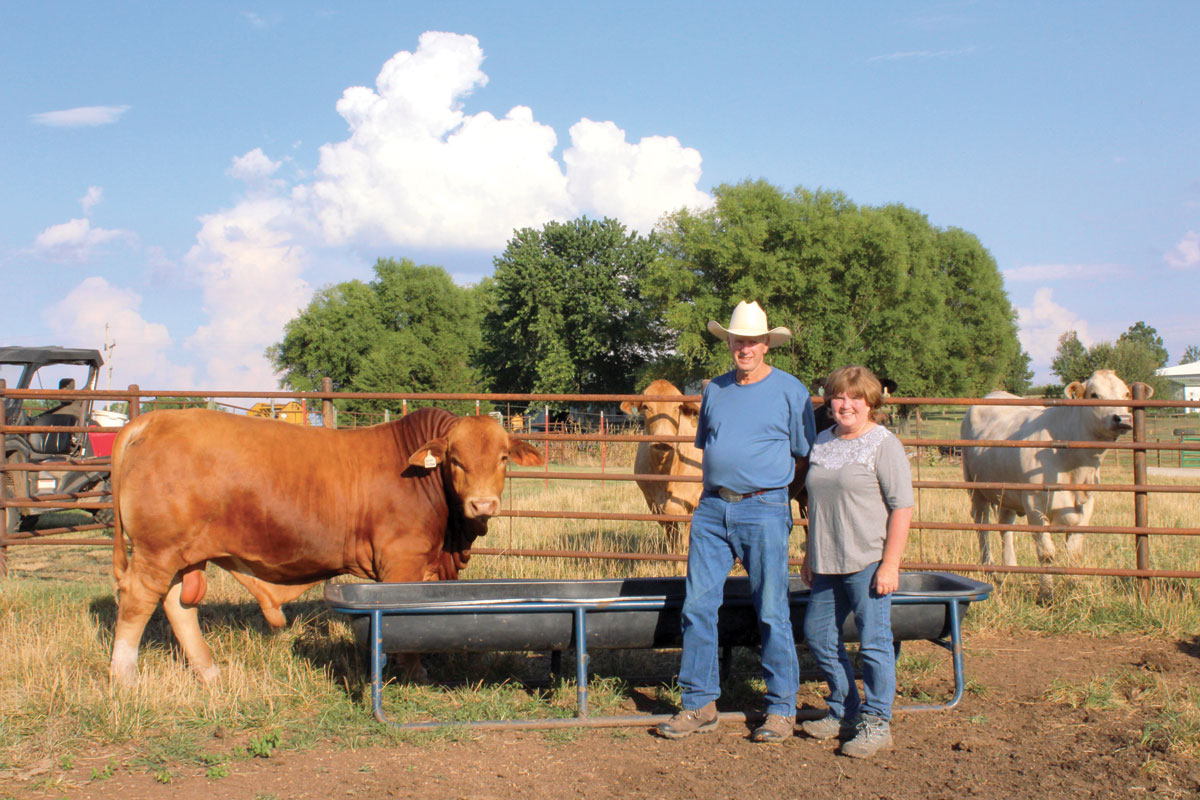
An ad in a newspaper started Loridian Bromberek-Reading’s goat herd
LEBANON, MO. – Arriving at Loridian “Lori” Bromberek-Reading’s Millcreek Farm in eastern Laclede County, Mo., is like pulling onto a grown-up petting zoo.
Goat kids and their nannies stroll about, the young goats playing with each other as they curiously observe the newcomer.
“I can’t wait for my fence guy to get here,” Loridian said laughingly as she shakes her head at the number of goats that for the moment, are lounging about the drive beside her home and garage/barn. Despite her impatience with the situation, the goats appear to be perfectly content. She adds that visitors to her farm are a common occurrence as a number of her customers come to pick out their own goats for pets or as foragers to help control brush on their property.
“My herd is about 80 percent Boer cross goats. They are, of course, meat goats,” she explained. “But I have some dairy goats mixed in here, too and I milk a few. This was originally a 440-acre farm owned by my husband, Mike Reading’s, family that belonged to his grandparents, Joe and Nellie Purdy, who acquired it in 1936. The different grandkids inherited it and now I have between 40 and 55 does on approximately 100 acres. Right now, with all the kids, of course, I have well over 100 goats, with 55 to 65 kids. We are getting ready to wean and make wethers out of the boys. I can’t afford to do them all as pets so some have to go for meat to keep us going.”
A few years ago, Loridian said she saw an ad in a newspaper for a goat for $10.
“I drove out in the country, put her in the car and then she had babies and I was hooked. Goats are more like dogs than sheep,” she continued. “A goat will come to know your voice, be friendly and follow the owner around. I sell a number of mine as pets. I castrate almost all the males so those, the wethers, go to the sale barn and are sold for meat. I don’t get too friendly with them because I know where they are going. The others are a little different and we know they will be around a bit longer. I do get the occasional really good-looking male and I keep those bucks to sell for breeding.”
While goats can breed twice a year, Loridian feels it is hard on the animals and she prefers a once-a-year kidding season.
“You put the billy in with the does for a month or so, then you’ll have most of the kids born within a month as well,” she explained. “It makes it easier on you and easier on your animals.”
She does not do registered Boers as she does not consider all the paperwork and registry worth the effort, but she always uses a registered Boar billy for all of her breeding.
“There is so much to learn and I am an avid reader. I believe knowledge is for sharing,” Loridian said. “Some people don’t want to do that and that’s a shame. Sharing all of this is the way it should be.”
Part of her goat-rearing education was learning what goats will eat, and the benefits they can present.
“Goats are foragers while sheep are grazers,” Loridian said. “Sheep are after the grass. Goats will eat poison ivy, kill off cedars and eat the nastiest brush. They can and will stand on their hind legs to get what they want while sheep cannot. That’s why the goats do such a good job of clearing the land. They have really helped to clean up this place after we moved back here. They will eat grass, too but they prefer what grows above the ground. Sheep, on the other hand, have their noses to the ground and make paths in the grass.”
“There is so much to learn and I am an avid reader. I believe knowledge is for sharing. Some people don’t want to do that and that’s a shame. Sharing all of this is the way it should be.”
– Loridian Bromberek-Reading
“You don’t want them in your garden,” Natalie Strohl, Loridian’s 10-year-old granddaughter, added with a grin. Natalie and her 13 year old sister Emily enjoy helping their grandmother with her four-footed charges.
“They are both good helpers,” Loridian added. “Natalie is my real star with the goats. We missed a generation in her mother, Elizabeth, who runs her own cleaning business in town but these girls are real little goat herders.”
The overall health of the herd is closely monitored by Loridian, who is a nurse practitioner with Dr. Kenneth Dugan in Ava, Mo., and Mountain Grove, Mo.
“Parasites, of course, are your big problem with goats, along with mineral deficiencies like selenium and copper. We give them selenium supplement injections when we work them up and also trim their feet,” Loridian added. “We get them copper bolus pills to fight against copper deficiencies. We have a worming program and do fecal exams to make sure we are addressing the correct worm-mineral replacement, either injectable or oral. It is essential that we include selenium injectable, copper boluses, B12 injections, as well as worming three times a year. This prevents problems that can make them lethargic, with floppy babies that have such muscle-wasting issues that they’ll die. It takes about a week to get it all done when we start working them but it just has to be done to keep a healthy herd.
“Worms are the main problem though and there are natural remedies, too, like lespedeza grass. The farmers hate it but it’s a natural wormer for the goats and I love it. We also supplement after kidding and in the winter and of course, rotational grazing is a must. It helps so much.”
Loridian said her “town job” helps keep her herd going.
“I work so I can pay the bills and keep my goats,” she said. “But it is all worth it.”







